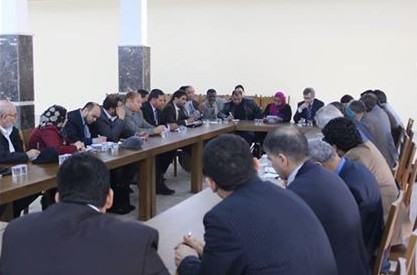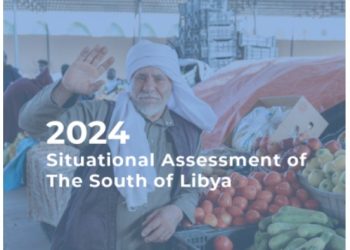By Libya Herald staff.

Tripoli/Tunis 2 March 2015:
Both the House of Representatives (HoR) and the General National Congress have agreed to turn . . .[restrict]up on Thursday to the next round of the UN-brokered dialogue process, to be held in Morocco.
The HoR, which had pulled out of the process a week ago following the bombings in Guba, performed its U-turn following talks in Tobruk between members of its dialogue committee and UN Special Envoy to Libya Bernadino Leon. He had flown in to try and convince the HoR to change its mind. Leon also met with the HoR’s president, Ageela Saleh Gwaider.
Nonetheless, according to Benghazi HoR member Aisa Al-Araibi, the House laid down a number of conditions for rejoining the dialogue. These are that the international community accept that it is the only legitimate parliament in Libya, that any government of national unity which emerges from the dialogue process must be approved by it, and that it is understood that the Libyan army is fighting terrorism.
Leon then flew to Tripoli to meet the General National Congress’ dialogue committee. This evening, following the meeting, Deputy Congress President Saleh Makhzoum, the leader of its delegation to the talks, announced that his group would go to Morocco on Thursday. He also stressed that Congress wanted to find a solution.
Despite the breakthrough, hopes for a halt to the fighting appear remote. Last Thursday, Leon was in Zuwara meeting commanders of Libya Dawn to encourage them to accept a ceasefire in support of the dialogue.
Despite reports that the military Joint Operations Room, which includes Libya Dawn, had accepted the need for a ceasefire as well as a statement from UNSMIL that “the participants agreed on the principle of a ceasefire and underlined the need to end the bloodshed in Libya and engage in dialogue”, Libya Dawn’s media office has said that “no ceasefire agreement was reached.”
Dawn has also laid down a number of preconditions that make a ceasefire almost impossible.
These are that a ceasefire be declared (and implemented) throughout the whole country without exception, General Khalifa Hafter’s forces pull out of Benghazi, air strikes in the east of the country stop, Zintan and Warshefana forces withdrawn from Wattiya airbase, and Zintani and the Warshefana surrender their weapons and ammunition and what the media office called their “criminals” to the General Staff (meaning the armed forces under the control of Major General Abdusallam Jadallah Obeidi, the Chief of Staff recognised by Libya Dawn).
Unless the preconditions were met, the media office was reported saying, the fighting “to liberate the country” would continue.
There is almost no chance that the demands will be met.
With input from Fares Labedi [/restrict]







